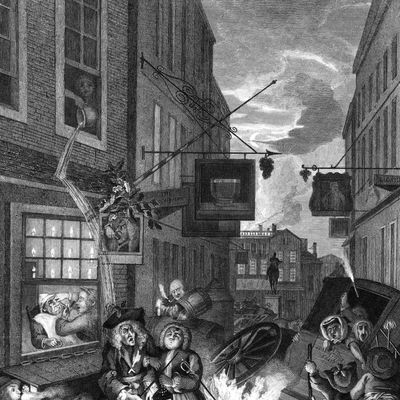
Stephen Marche wrote an op-ed in the New York Times this weekend, trollishly headlined “The Case for Filth,” overstating a case that I’ve made myself: Namely, that one way to solve the problem of women performing more housework than men is to reduce the total amount of housework. Jessica Grose originally argued against this position in the New Republic, and responds to Marche again today, in a way that identifies his excesses but, I think, leaves my less trollish argument pretty well intact.
Grose’s premise is that there is basically a fixed amount of housework, and if men aren’t doing it, then women must. Marche argues that the level and composition of housework is culturally determined. Different societies at different times demand radically different standards of cleanliness, and we should not assume that one is any better than the other. Marche mentions the Renaissance Europeans. Grose replies that their standards “directly led 200 million people to die from the Bubonic Plague. That is objectively, not subjectively, filthy.” Point to Grose.
Indeed, Marche’s embrace of “filth” implies an absolutist cultural relativism that’s preposterous — even if both members of a loving domestic couple decided to hurl their feces out of the window into the gutter, that’s not even legal anymore. Filth — things that can rot — is something that needs to be addressed for purposes of health and safety. Clutter does not.
But that only argues that both partners should split the level of cleaning necessary for basic health. Above that, you’re back into personal preferences. Grose’s original cris de couer mentions such tasks as putting away magazines and toys, and vacuuming “day in and day out.” There’s nothing unhealthy about leaving magazines strewn around your coffee table. In her more recent reply, she argues, “Toddlers will eat dust bunnies,” but how serious is that risk, really? You could spend that marginal time reducing the risk of toddler dust bunny consumption, but you could just as well use it to sleep, exercise, read to your child, or something else with an equal or greater impact on the health and well-being of your family.
The basic principle of an egalitarian marriage, I think, ought to be that both partners try to accommodate one anothers’ needs as fairly as possible. Grose asks, “Why should women lower their standards to accommodate male partners who happen to be slackers?” Well, why should men raise their standards to accommodate female partners who happen to be neat freaks? The answer to both is: When you’re married to somebody, rather than deciding one person’s lifestyle is correct and the other’s is wrong, you sort of blend them together.






























